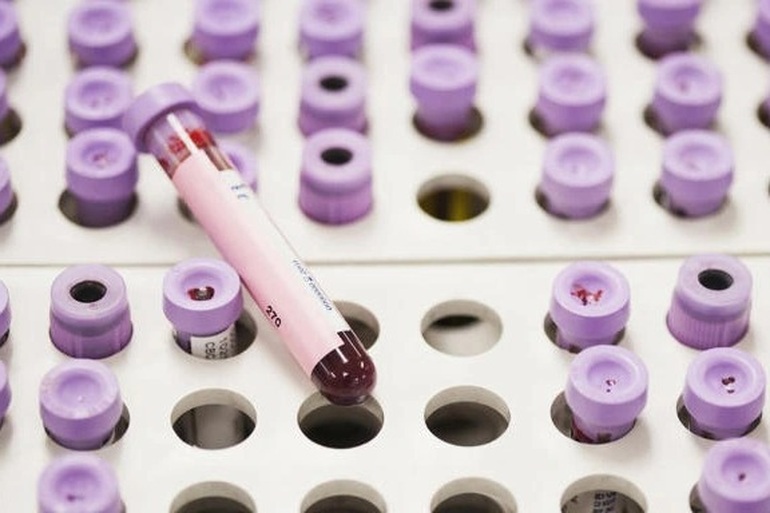How does blood type affect the severity of Covid-19?
Since the beginning of the pandemic, researchers have been trying to find out what exactly makes some people more susceptible to severe Covid-19 while others get milder.
And while there is a long list of risk factors that make the disease serious, there are still many questions surrounding how blood type may affect the course of the disease.
Recently, a study found an association between the severity of Covid-19 with blood group. The study, published in the journal PLOS Genetics, analyzed more than 3,000 proteins in the blood to find the protein that makes Covid-19 worse or worse (researchers define “severe illness” as requiring hospitalization, needing help, or being hospitalized. respiratory support or death).

The results showed that certain proteins in the blood appear to increase the risk of severe Covid-19, including a protein that determines blood type. The article states that “the results of the study could not determine exactly which blood group increases the risk of hospitalization due to Covid-19”. However, the researchers found the marker was only present in blood types A and B, and not in blood types O.
Christopher Hübel, study co-author, said blood type A is particularly suspicious. “Since previous research has found that the proportion of blood type A is higher in people who are positive for Covid-19, this suggests that blood type A is more likely to be a candidate for further studies.” , he said.
This raises many questions about blood type and Covid-19 risk. including what you should do if you have blood type A or B.
Why can blood type affect Covid-19 risk?
This is not the first study to find an association between blood type and Covid-19. An article published in the journal Frontiers in Cellular and Infection Microbiology in November also found that people with blood type A (along with blood type B) had a higher risk of contracting the virus, while those with blood type O and AB have a lower risk. An early study from China also found that people with blood type O have a lower risk of contracting Covid-19, while people with blood type A have a higher risk.
“There’s been a lot of research on blood type and the risk of Covid-19,” said Dr. Thomas Russo, head of the department of infectious diseases at the University at Buffalo in New York. “A few don’t support this association, but the majority do. It’s really remarkable.”
Experts say there is a possibility for this. “Blood proteins can be correlated with immune function and inflammatory responses,” said Dr. Amesh A. Adalja, an infectious disease specialist at the Johns Hopkins Center for Health Security.
The exact reason for this is still being researched, but there are several theories. One is that type O blood gives you antibodies against blood types A and AB that can reduce your risk of getting infected SARS-CoV-2 through a specific receptor on the cell. Another reason is that blood type A or B “enhances the ability to infect cells with viruses”.
But Dr Vincent Millischer, Ph.D., a research fellow at the Karolinska Instituet, stresses that for now it’s all speculation. “Even if we find a cause-and-effect link between the two, we can’t come up with an answer as to why.”
Does blood type affect the likelihood of other diseases?
There is some precedent here. A study published in 1977 found that people with blood type O are more susceptible to cholera infection, while people with blood type A are less susceptible.
Another study published in 1993 found that people with blood type O are more susceptible to infection with Helicobacter pylori (the bacteria that causes stomach ulcers) than people with blood type A or B due to differences in the lining of the digestive tract. And a 2003 study found that norovirus binds more effectively to antigens in people with blood types O and A, but not so much in people with blood types B.
A study published in 2005 also found an association between healthcare workers with blood type O and a reduced risk of infection with SARS-CoV-1, the virus that causes severe acute respiratory syndrome (SARS).
How does blood type affect overall Covid-19 risk?
This is still unclear, but there are a number of factors that influence the likelihood of getting Covid-19 and becoming severely ill with Covid-19. That is, while blood type may play a role in the risk of developing severe Covid-19, it is not the only factor or even a major factor.
Age is a factor in determining the level of risk – the risk of death increases with age. However, underlying medical conditions such as lung disease, obesity or diabetes also play a role.
What should you do if you have blood type A or B?
Do not worry. Regardless of your blood type, the methods to protect yourself from Covid-19 are the same. That means getting your Covid-19 vaccine and booster shots when you’re eligible, wearing a mask, and doing your best to practice good hand hygiene.
However, if you have blood type A or B, you should rethink how you view your risk of severe Covid-19 infection. If you have these blood types and are hesitant about getting vaccinated, this could be one more reason why you should do it.
at Blogtuan.info – Source: dantri.com.vn – Read the original article here



